
Private Blog Networks (PBNs) claim to work because they generate backlinks – and that much is true.
What about their other claims, though?
We know backlinks work to improve SEO and therefore visibility in the SERPs, but do PBNs work?
And if so, do they work well?
How do they even work?
Well, let’s answer those questions.
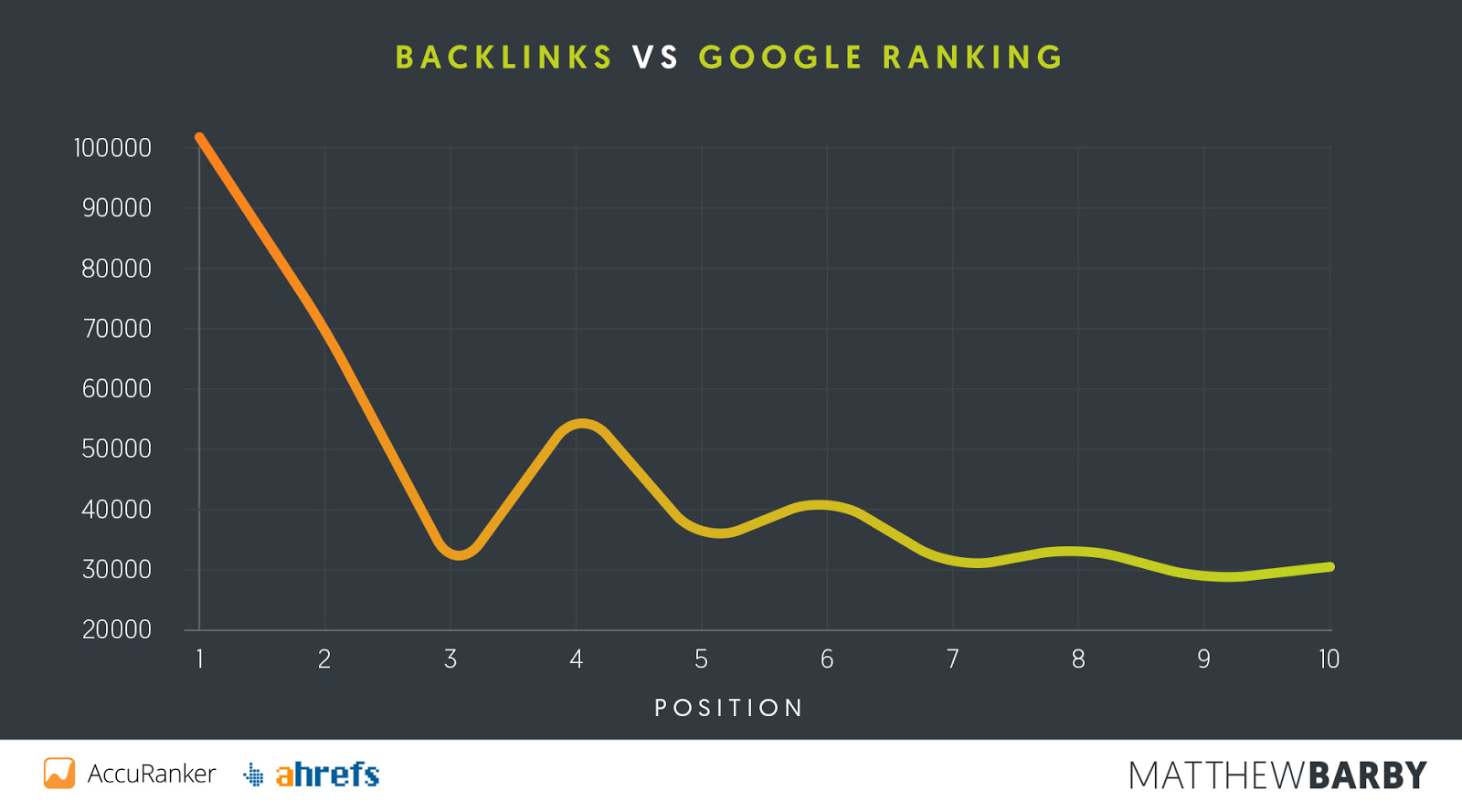
What Is a Private Blog Network?
Luckily, private blog networks are actually quite simple to understand.
At some point in the era of SEO, someone figured out how to build a massive amount of backlinks from high-domain authority websites without much effort.
They did it by purchasing expired domain names that had already established domain authority.
Then, after collecting quite a large portion of these domains, they posted basic content to each website and included a backlink to their primary website in all of the content.
And voilá! They immediately generated loads of backlinks from high-domain authority websites.
At that moment, private blog networks were born.
Think of PBNs like a database of websites that, when you pay, all give your website backlinks.
It ends up looking something like this.
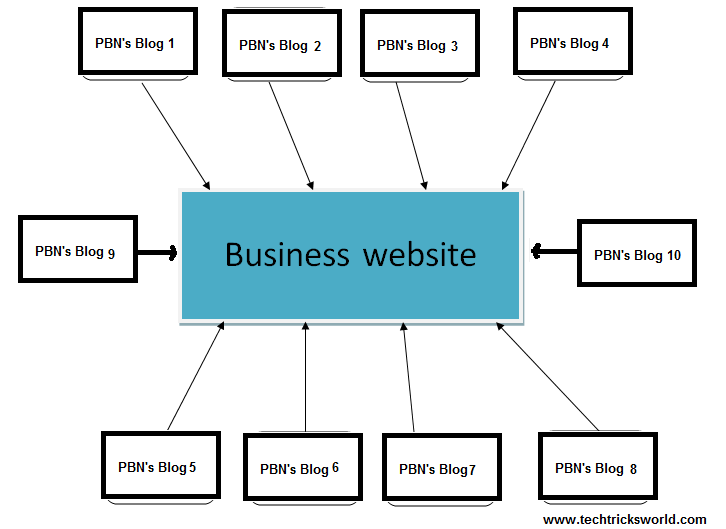
And with all of those backlinks your website’s domain authority, SEO, and rankings all benefit.
It sounds great, right?
Why wouldn’t you want to pay a little bit of money to increase your rankings and generate passive traffic to your website?
That’s the dream of most SEO experts, after all.
Well, not so fast.
To help you determine whether you should leverage PBNs, we’re going to first talk about the benefits that they have to offer. Then, we’ll discuss why they are a bit risky.
With that knowledge, you’ll be better prepared to make an informed decision for yourself.
Pros: The Benefits of Private Blog Networks
While you might have heard that PBNs are scams that won’t help your SEO, that claim is only partly true.
PBNs offer legitimate benefits.
But before I get much further, let me mention a quick disclaimer:
I’ve never used a PBN for my own website and I don’t recommend using them for your website either.
I’ll explain why a little bit later, but I wanted to get that out in the open, so you know where I stand.
For now, though, let’s discuss why PBNs entice many marketers.
As I already mentioned, backlinks fuel the success of private blog networks.
And what exactly is a backlink?
A backlink is a hyperlink that leads from an external website to your own website. And these little beauties massively help your SEO.
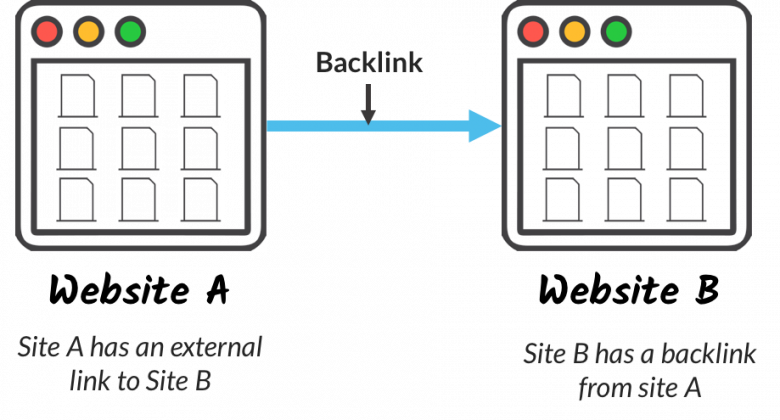
Backlinks communicate to search engines that the linking website trusts your website enough to associate itself with your domain.
That means that the search engines will trust your website as well.
It’s kind of the same thing as playing with the cool kids on the playground.
When you’re hanging with the cool kids, that makes you cool.
Similarly, to figure out which websites are worth trusting, search engines look at which websites are linking to each other.
For that reason, link building is the top factor contributing to the rankings of a website.
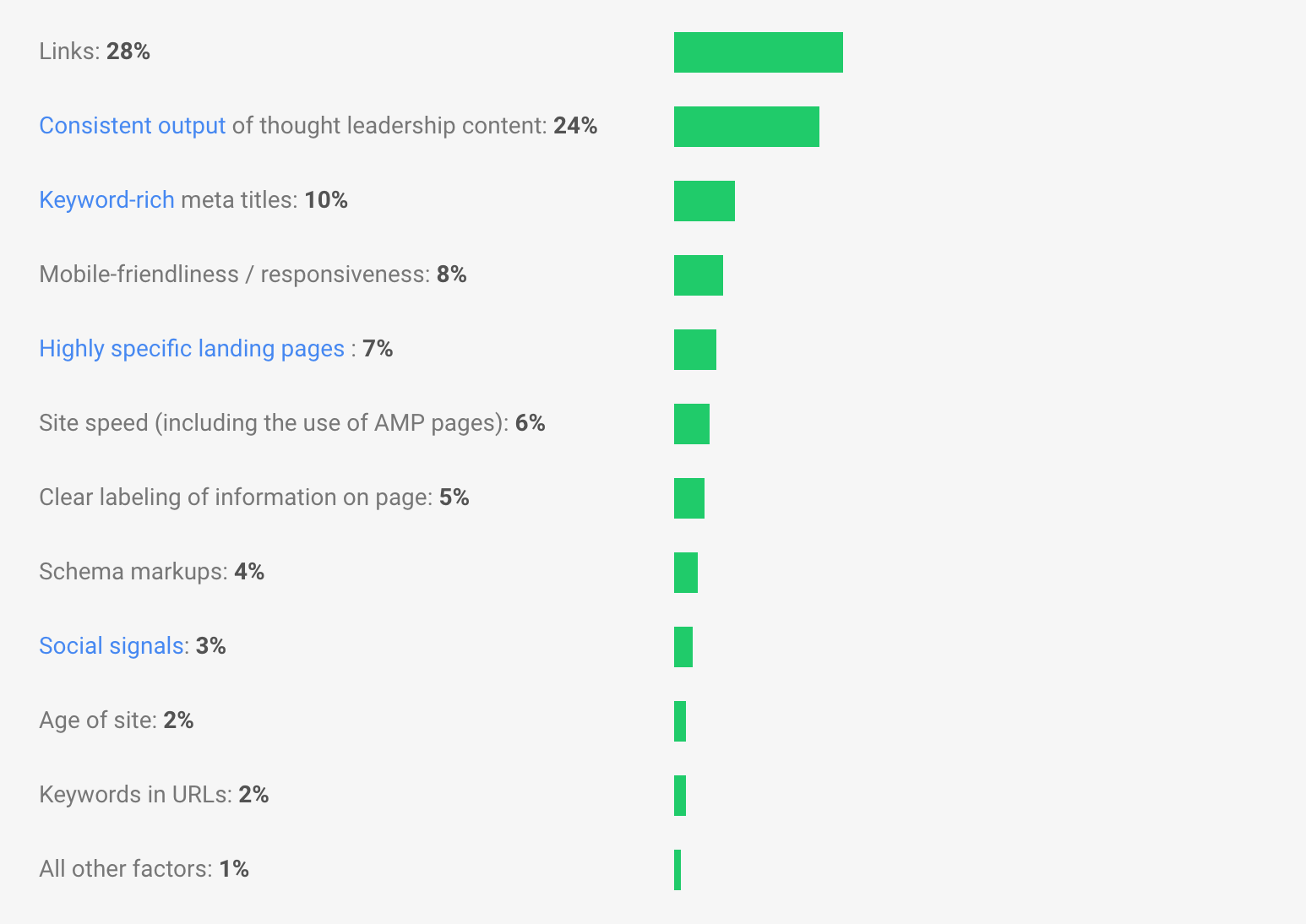
PBNs can be so effective at building these backlinks that one company experienced this difference in its rankings after working with a private blog network.

So, can PBNs increase your SEO?
Yes, of course, they can.
That’s why so many marketers use them at some point. It’s why they have stuck around for so long, and it’s the reason that certain SEO firms make loads of money.
But what’s the dark side?
After all, everything that goes up must come down. Everything that sounds too good to be true is too good to be true.
Here are the cons you need to be aware of.
Cons: The Risks of Private Blog Networks
PBNs sound great.
That is until you find out about the risks involved with using them.
Yes, they can increase your SEO and help generate passive traffic and leads to your website.
However, that entire marketing strategy can quickly become a disaster if Google catches you.
So, in case you’re wondering, yes: Google hates PBNs and intentionally tries to penalize people who use them.
However, I understand the appeal.
I get it. SEO takes a long time to start impacting your rankings.
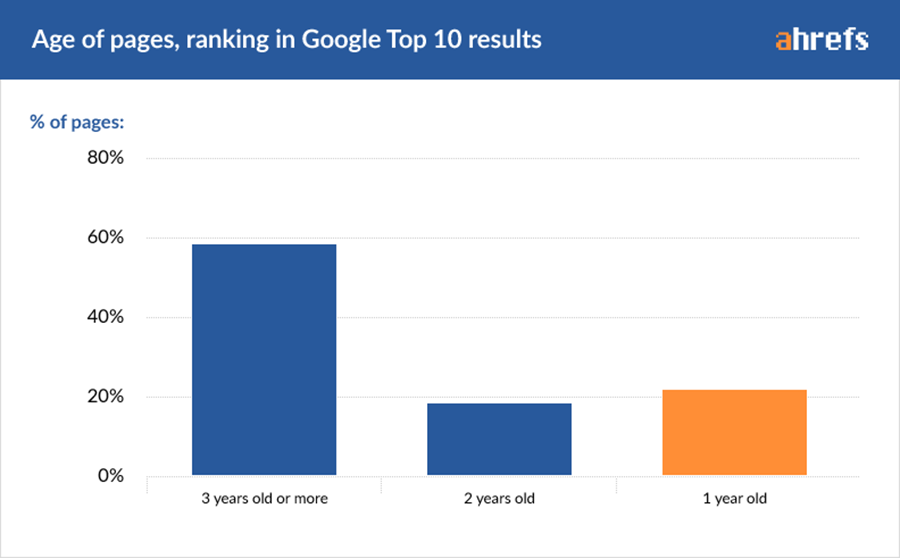
The quick fix that PBNs offer is just too enticing for some marketers. You get fast rankings, brand awareness, and, hopefully, revenue.
At least, that’s what the PBNs promise.
But if all of that benefit can fade in a single moment of vulnerability, is it really worth it?
PBNs aren’t technically a blackhat SEO strategy.
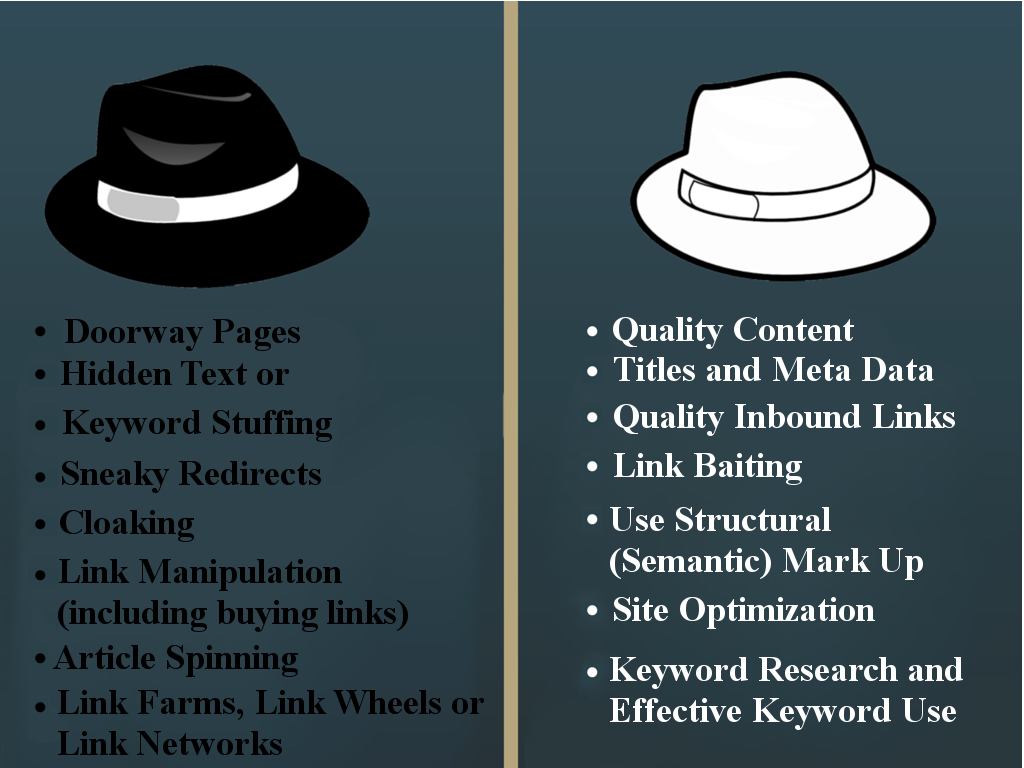
But they aren’t white hat either.
They’re a hack. They amount to a get-rich-quick scheme. And as with most similar tactics, they involve some serious risks.
If Google finds out, then they will penalize your website, and you’ll struggle to gain any significant ground in SEO.
But how? How does Google penalize websites that use PBNs to boost their SEO?
How would they know what you’re doing?
Well, if all of the websites that you’ve received backlinks from are websites with very little activity, few updates, and almost no internal linking, then Google gets suspicious.
Unfortunately, PBN websites usually have all of those specific qualities.
That makes it easy for most search engines to spot them.
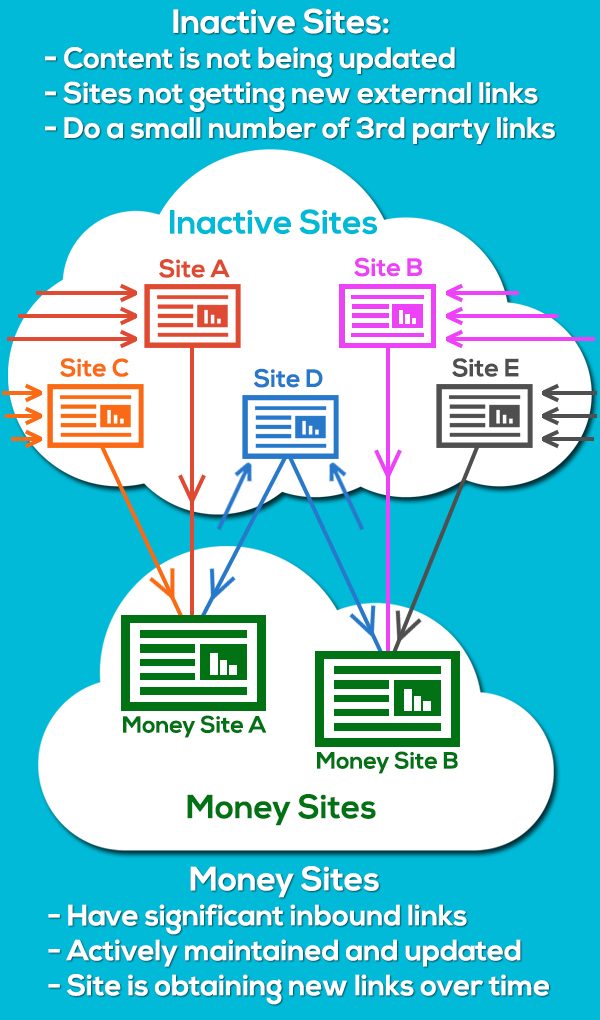
In the end, if you decide to use PBNs, know that you run the risk of hurting your website’s SEO.
Legitimate pros exist, but only under a cloud of potential penalization by search engines.
You might generate some quick domain authority with PBNs. While traditional strategies take longer, they aren’t nearly as risky.
But if you want to rise through the rankings the right way, then here are five risk-proof strategies you can use instead.
1. Guest Blogging
Guest blogging gives you an opportunity to provide value for someone else’s website while also getting a backlink.
If you do it right, this strategy will be a win for the website you write for and a win for your own website as well.
For that reason, SEO agencies and experts alike use guest blogging as one of their link-building strategies.
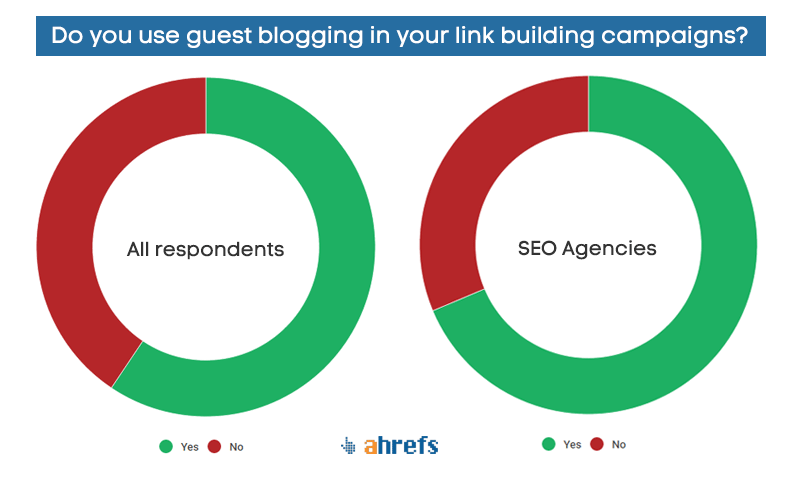
You can do the same thing.
Just find blogs within your industry and pitch the editors an article over email. If they accept your pitch, you can run off to write and include a backlink to your own website.
But before you do, make sure that you ask the editor what their policy is regarding backlinks.
They might not want you to include a backlink to your website within the article itself, but they’ll let you put it in your bio.
Either way, you win a backlink, and they win a valuable piece of content for their audience.
Now, you might be nervous that editors won’t respond to your emails.
But we’ve created this handy guide for guest blogging proposals to help you get started.
Remember: don’t quit early just because you don’t get a response.
Pitch enough places with high-quality ideas, and you’re sure to receive a reply.
Just give it some time.
And keep this in mind as well. The ideal word count for ranking articles sits right around 2,400 words.
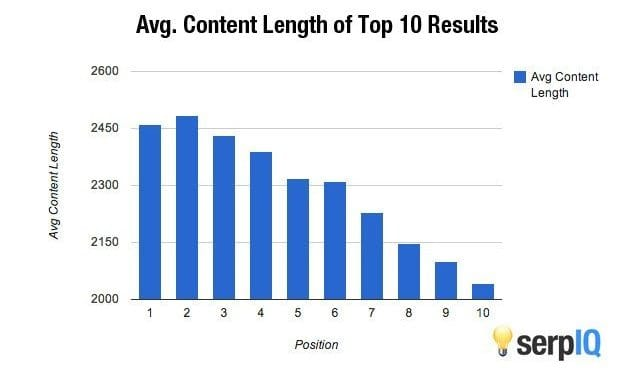
Ultimately, follow the guidelines of the blog you’re writing for. But when it doubt, try to write an article that will rank well on Google.
Then, the website will be more likely to accept your pitch, outline, and final draft.
2. Writing Testimonials
While guest blogging is one of the most popular strategies for generating backlinks, you might not have the time.
If you don’t, then writing testimonials for other websites might be a more appealing approach.
Even if you do write a guest blog post, writing testimonials with a backlink to your website is a strategy worth your time.
It’s simple and powerful.
All you have to do is provide a testimonial for websites that you partner with.
Then, most of the websites will include a friendly backlink to your URL.
Just make sure that your testimonial provides genuine value. Write something like this, for instance.

Or give them something like this.
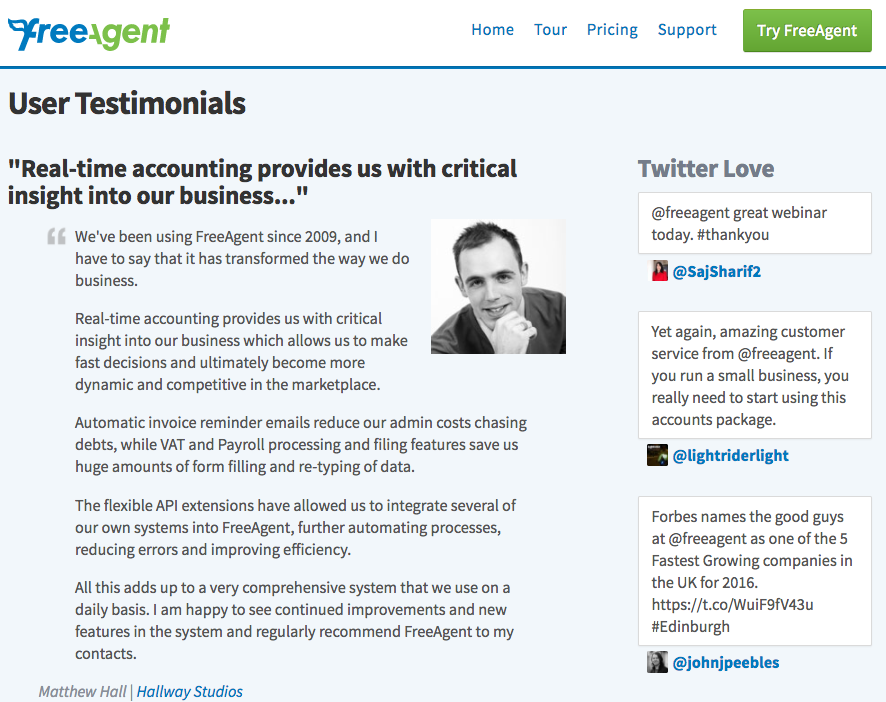
And here’s one more example.
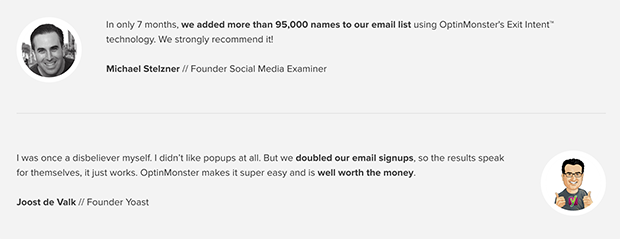
Always include these two specific things in your testimonial.
- Provide a number that shows the success you experienced from using their product or service (traffic or lead generation numbers, revenue numbers, or the number of opt-ins, for example).
- Talk about one concern you had when buying the service that the excellence of your experience quickly dispelled. (For example, “The price point seemed a little high at first, but now I realize that every single penny was worth it! I’d even spend more for this service, but don’t tell them I said that.”)
With that start, you’ll be off and writing testimonials for your partners in no time, generating backlinks with every reference.
3. Creating Share-Worthy Content
If you don’t create content worth sharing, then you can probably guess what will happen: No one will share it.
Your goal when you write that blog post or film that video or design that infographic is to generate attention for your brand.
You want to increase brand awareness, drive traffic to your website, and use the content to generate leads.
You even want to generate social backlinks to your website.
But, of course, you can’t do that if you create bad content.
If you’re going to create the content anyway, then take the time to make it great. Make it share-worthy.
But how do you do that?
Well, you need to make people who share your content look good.
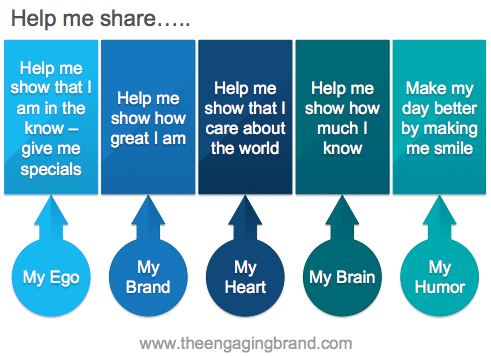
People share things on social media and through email because they want to look good to their friends.
That might sound egotistical, but it’s the human condition.
Ask yourself: What reason do people have to share this with their friends? Will it make them seem funny, smart, kind, cool, or rich?
To get shares, you need to target at least one of those motivations.
After all, those are among the top reasons why people share content in the first place.
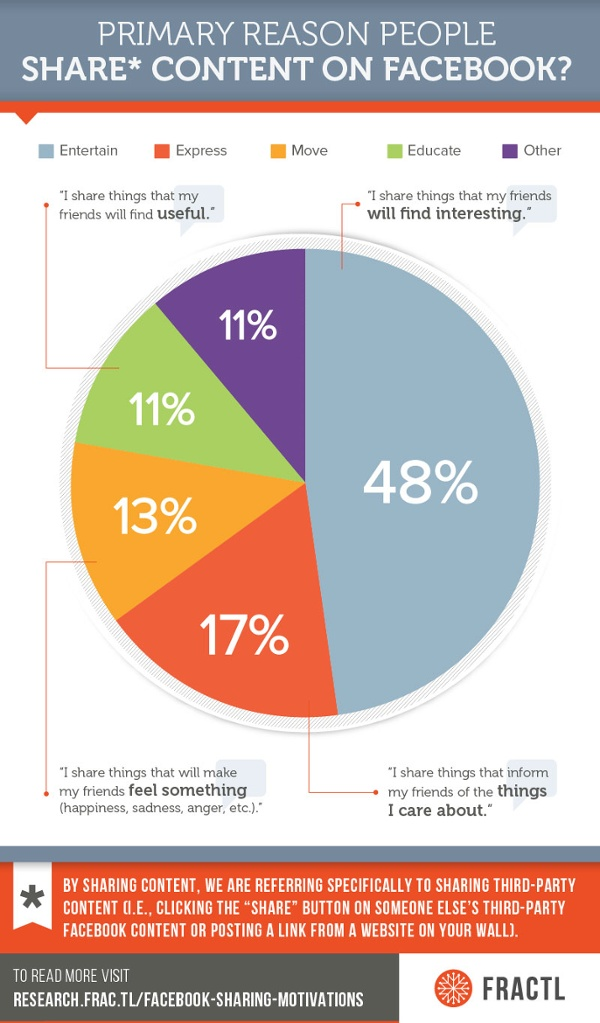
And when it comes to which type of content to produce, infographics and lists win.
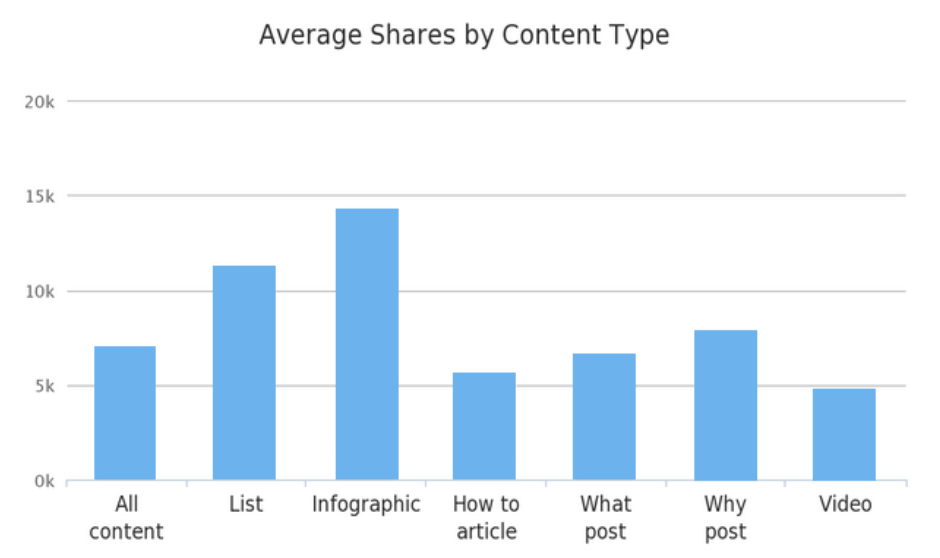
Another strategy that works is spying on your competitors to understand what’s performing best on social media. Here’s an easy way to do so:
Step #1: Visit Ubersuggest, Type Your Keyword and Click “Search”

Step #2: Click “Content Ideas” in the Left Sidebar
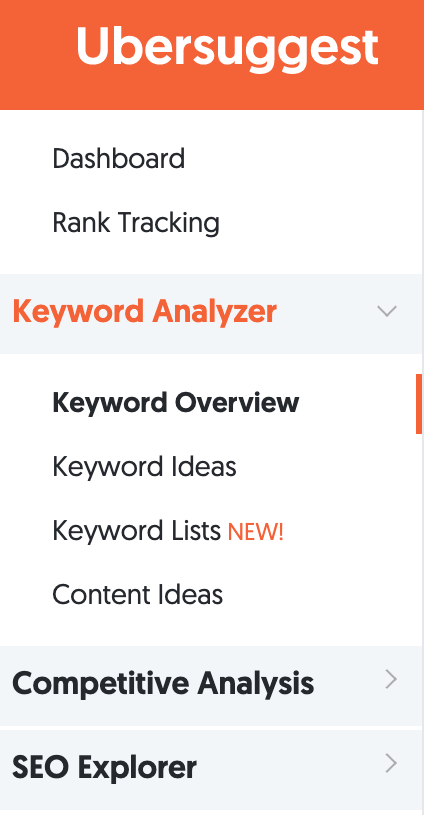
Step #3: Analyze the Results
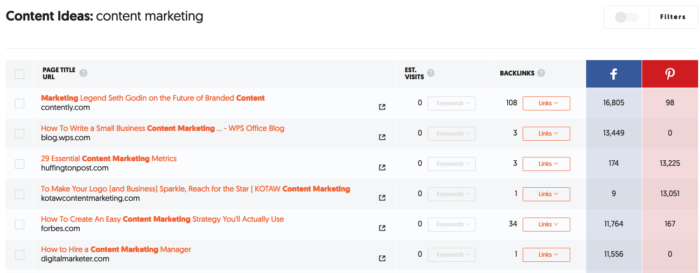
What you end up with is a long list of top-performing content related to your keyword.
For example, the top listing, “Marketing Legend Seth Godin on the Future of Branded Content,” has been shared 16,805 times on Facebook and nearly 100 times on Pinterest. That gives you a pretty good idea that the content is share-worthy. Now, you can craft your content in a similar manner, with the goal of achieving the same results.
However you do it, take the time to create amazing, share-worthy content. You’ll generate far more social backlinks, drive more traffic, and build better brand awareness.
You’re creating the content, so do the best that you can with it.
4. Leveraging Your Social Platforms
Social signals play a massive part in SEO.
Websites that stay active on their social media accounts, update their information, and generate more content shares tend to rank better than websites that don’t.
In fact, just on Facebook, that correlation is apparent.
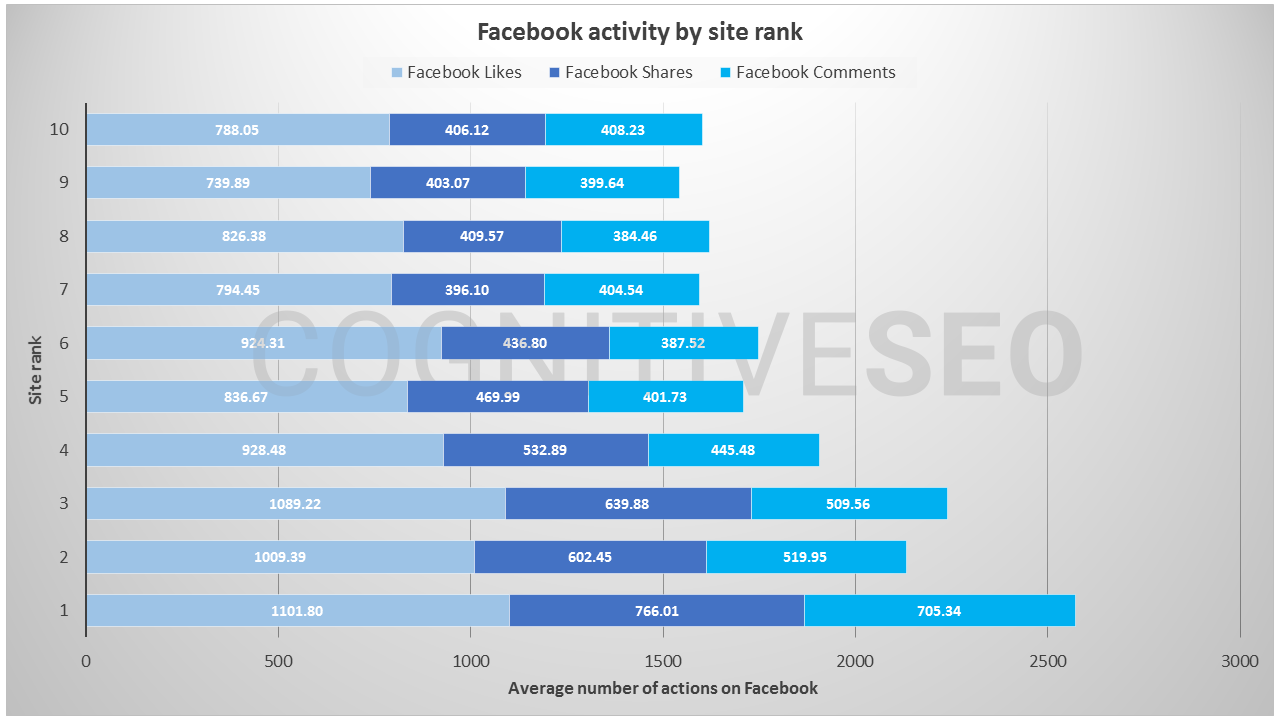
But why is that the case?
Why does Google rank websites that have an active and updated social media presence better than those that don’t?
The short answer is that search engines want to know your website is active and relevant.
If you’re generating lots of shares and social signals, then that tells Google to rank you better.
This means that just staying active on your social media accounts can help your SEO. It really is that simple.
And the more engagement you get on your social media pages, the better.
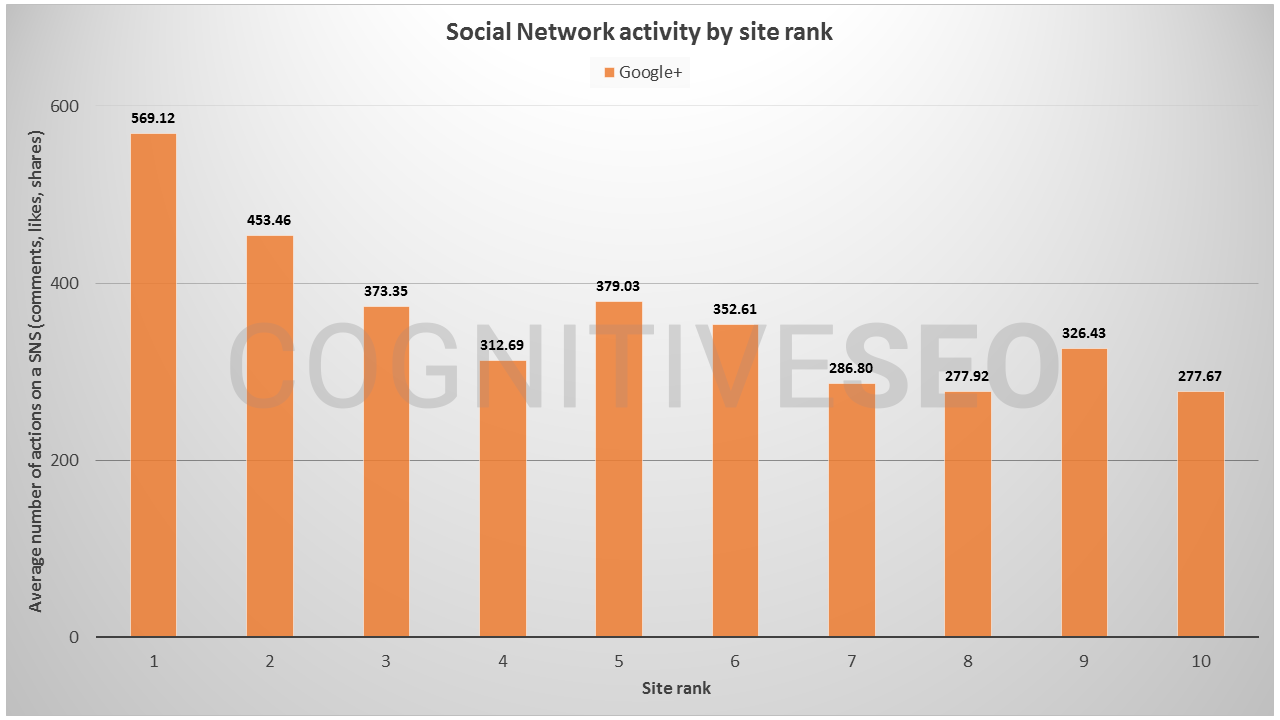
A 2016 experiment tried to discover the impact that social media can have on your website’s SEO.
In the study, one website with an increase in social shares experienced a 14.64% increase in rankings, and another website received a 6.9% SEO boost.
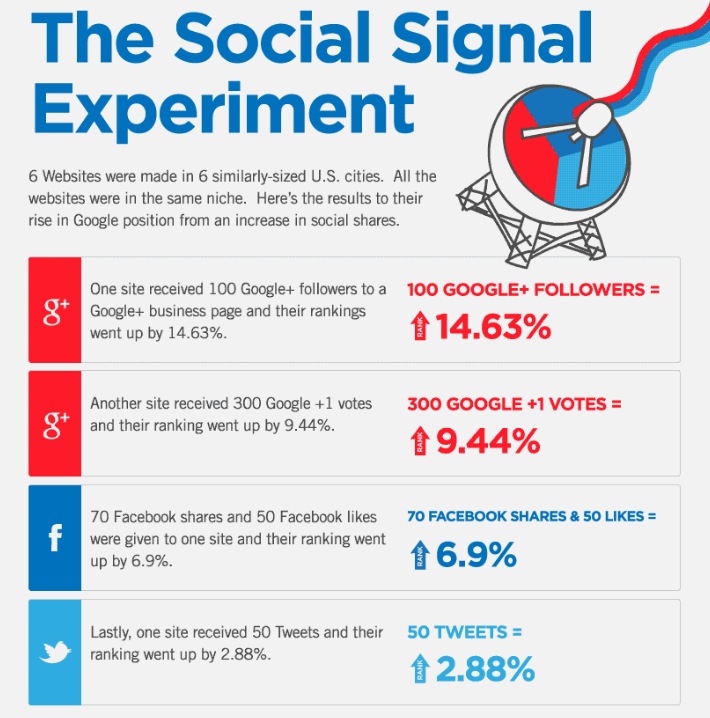
But if that’s not enough motivation for you to stay active on your social media accounts, just consider the additional traffic you’ll drive to your website with each post.
You won’t only win social backlinks. You’ll also generate traffic, leads, and even conversions.
5. Building a Loyal Audience
You’ve stuck with me this far.
But now you’re wondering, “How does building a loyal audience help your SEO?”
And that’s a great question.
Unfortunately, the answer isn’t as direct as you might like.
But it does exist.
Just consider, for example, that active blogs draw 6.9 times more organic search traffic.
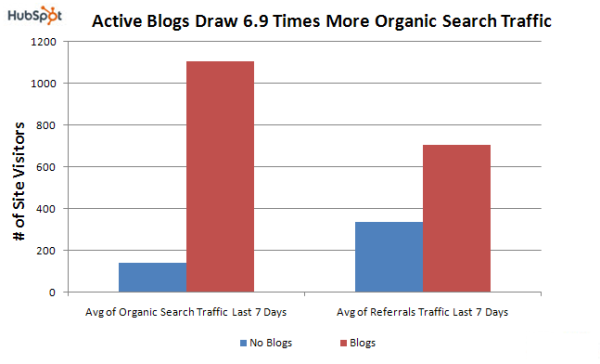
This means that just posting on your website’s blog regularly will benefit your SEO.
After all, the more people who search for your website and the more popular you become, the higher your domain authority will surge.
In other words, with a loyal audience comes a better ranking.
And, in turn, that’s good for growing your audience.
You see, it’s kind of like a self-sustaining, perpetual cycle.
With a larger audience comes better SEO, and with better SEO comes a larger audience. And with a larger audience comes better SEO, and on it goes. You get the point.
Plus, the bigger your audience, the more shares you’ll generate on social media, further helping your link-building strategy.
Of course, Rome wasn’t built in a day, and you won’t build your audience overnight.
Building a loyal group of followers is a process of posting consistent content over a long period of time.
You’ll cross times of discouragement and tribulation.
Sometimes, you’ll want to give up.
When you do, though, just keep in mind that acquiring new customers is five to seven times more expensive than retaining old ones.
In other words, all of that time and energy you dedicate to pleasing your existing audience will pay off when you’re trying to market to them.
Plus, you’ll generate more attention and better SEO from a loyal customer base than you will from new and fleeting customers.
Private Blog Networks Frequently Asked Questions
Can you be penalized for using a Private Blog Network?
Yes, you can be penalized for doing this.
Why are PBNs bad?
Google considers them scammy.
How do I find PBN sites?
Look for sites with high authority and links that you can buy – but this strategy is not recommended.
Are PBNs considered Black Hat SEO?
They aren’t considered black hat, but they are penalized by Google.
Private Blog Networks Conclusion
So, should you use private blog networks?
As I explained, they can help your SEO, and they can do it fast. But the entire time you use them, you run the unfortunate risk of destroying your website’s ranking potential in one fell swoop.
Is the risk worth it?
I hope that you’ll answer that question with a “no.”
SEO is good. But SEO spoiled by spammy tactics is not.
The better option is to build your backlinks over time by guest blogging, writing testimonials, creating share-worthy content, leveraging your social platforms, and building a loyal audience.
Even though it might feel like it takes a long time to rise through the rankings using those strategies, that’s time well spent.
You’ll have peace of mind knowing that no one can penalize you for shady methods.
Private blog networks aren’t black hat. But they certainly aren’t white hat, either.
They are gray hat. And that’s a hat you shouldn’t be willing to wear.
Do you think private blog networks are a penalty waiting to happen or a great SEO hack?
from Neil Patel https://ift.tt/3u0RODp